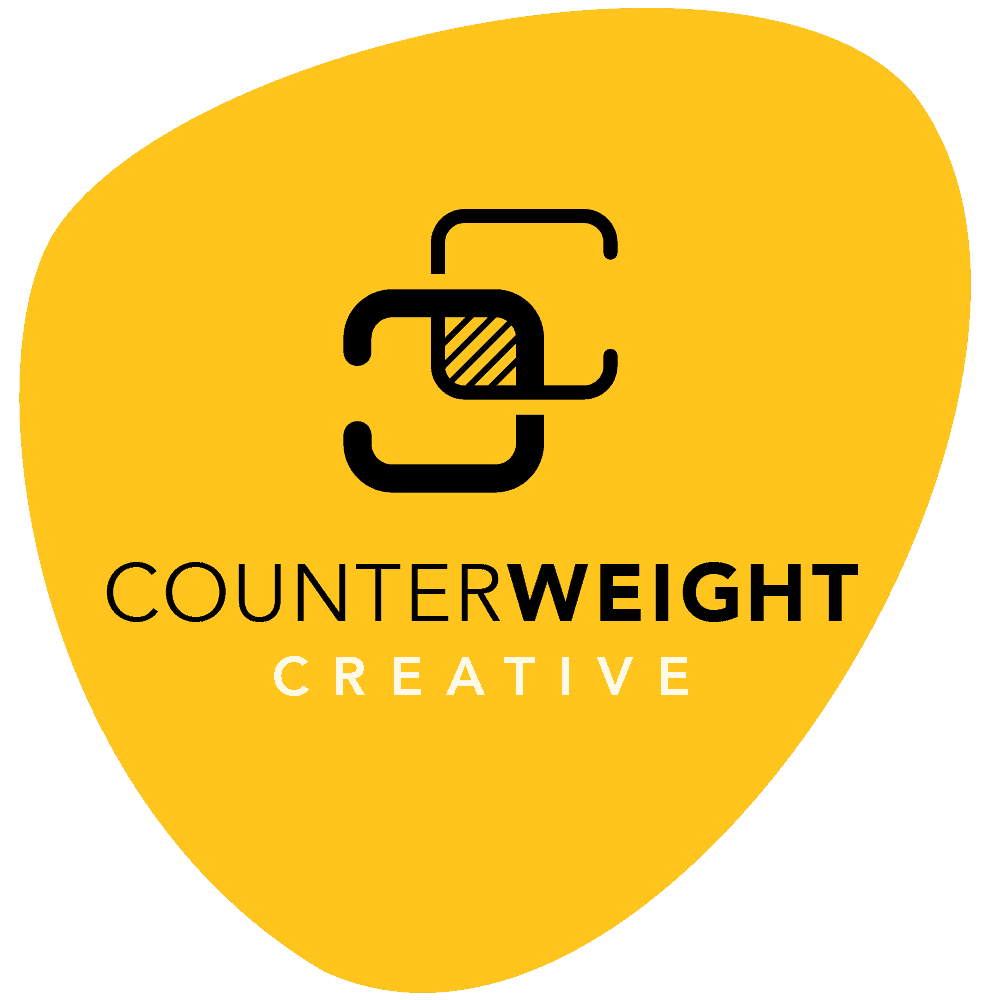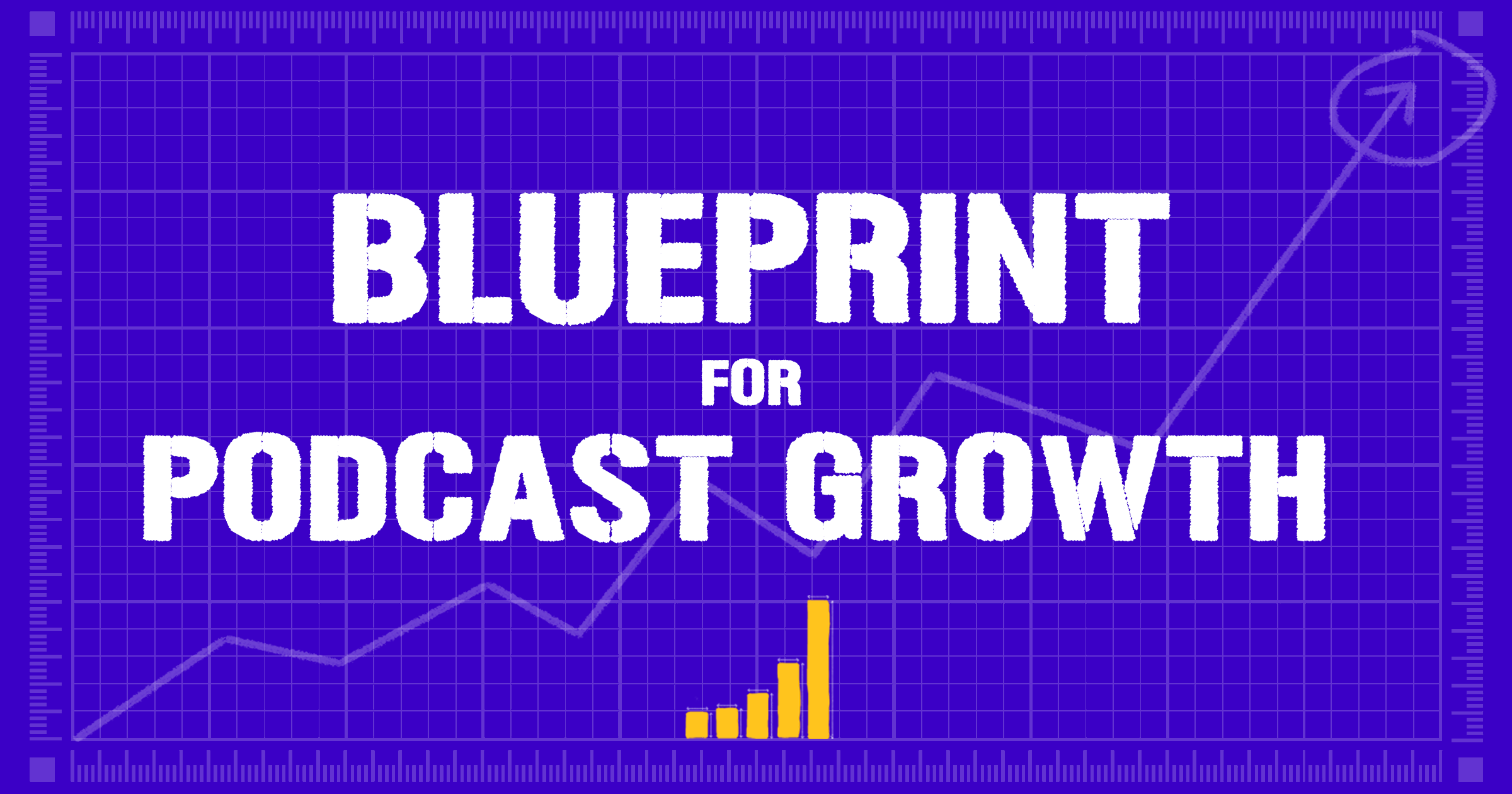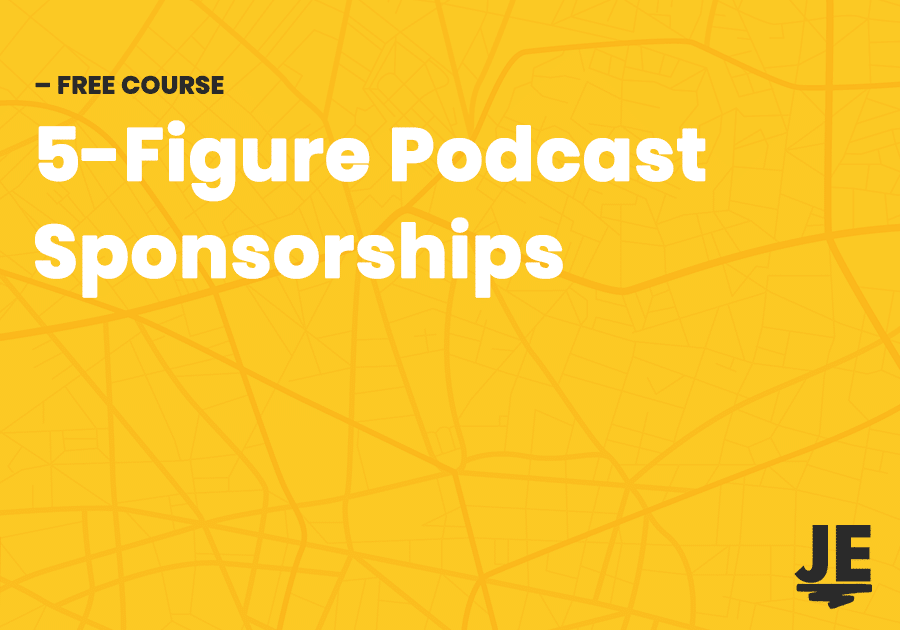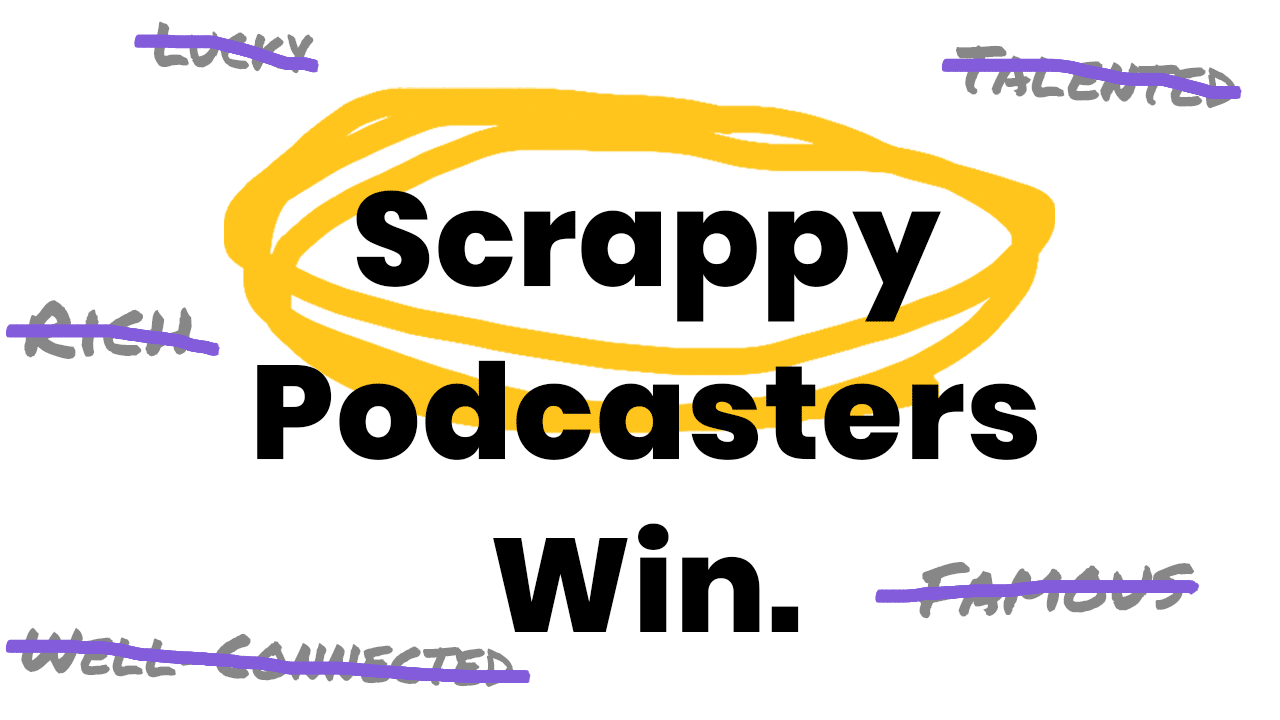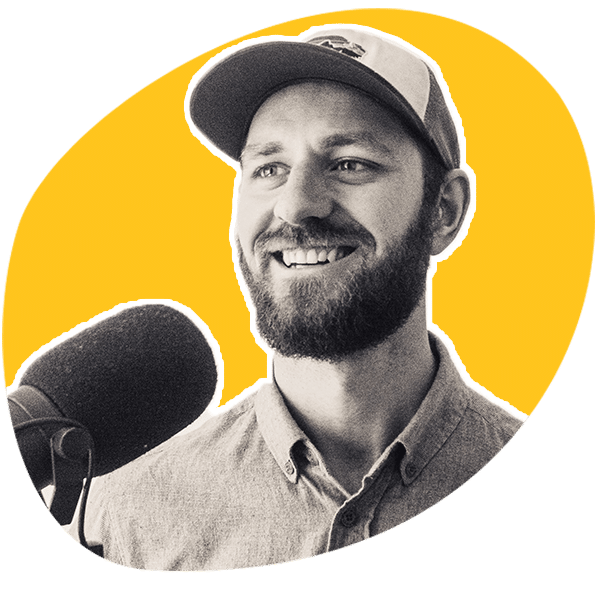Alright, so it’s a new year.
Many of us (*raises hand*) are pretty excited by a new year of opportunities ahead of us, both for our lives and our podcasts, and are determined to make them a reality.
If you read my last post, you might have already been thinking about some specific goals for your show, and laid out a road map for how you’re going to go about achieving them.
I think having these specific goals are essential, and will have a huge impact on the success of your podcast this year. In this post, however, I want to talk about some broad focusses that everyone can, and should be devoting time and energy to on their podcasts, all of which are essential to take your podcast to the next level.
Fittingly, we’re going to kick off the list with my personal hobby horse: Storytelling.
1. Improving As A Storyteller
Ok, so this could easily fall under the “Improve As A Host In General Category”, but storytelling is important enough to get it’s own section here.
It seems to me that we in the podcasting (as well as broader media) world have a funny relationship with storytelling. It’s become something of a buzzword over recent years, and yet the fact remains that few people are actually doing it well, or working to incorporate elements of story into their shows.
Of course, one of the first arguments that will come up is something along the lines of:
“But I have an interview-based podcast, not a narrative or fiction show! How can I create a story out of a conversation with someone I might not even have met before the interview??”
But here’s the thing. What types of interviews and guests are most engaging to a listener?
If you’re anything like me, it’s the ones where the guest is a fantastic storyteller, and is able to entertain us with their answers, no matter the subject matter.
I guarantee that if you’re able to make dense or typically dry or boring subjects entertaining as well as informative, you’re going to have a lot of success with your podcast.
Your Role As The Host
So the next question is inevitably, how do you as the host set up your interview to deliver engaging stories, even if you’ve never met them?
As I see it, you have two primary tools at your disposal here, and you should be using both of them.
- Your guest recruiting/filtering process
- Your interview question crafting
Guest Recruitment & Filtering
You’ll face different challenges at different stages of your shows growth when it comes to guest sourcing. Initially, the challenge will be finding quality guests at all. Once your show grows to a certain level however, the struggle may be to pick from more guests than you can ever possibly have on.
I’m of the opinion that regardless of where you’re at, you should be maintaining high standards for the guests you have on your show. The difference is that at the start, it’s going to take more research and hustle from you to find qualified guests and woo them onto your show.
In my opinion, while you of course want to be finding knowledgeable guests on your show, you should also be filtering for their ability to craft a narrative with that knowledge that is engaging and relatable. I would say that I would sacrifice some of that expertise in favour of storytelling ability any day of the week if it came down to that being the difference between two potential guests
Listen to other shows your potential guests have been on and analyze if they’re losing you with their answers or whether they keep you hooked throughout the conversation. These are the peolpe you want on your show.
Interview Question Crafting
While there are of course some people out there who will spin a story out of anything you give them, most guests are going to need some help from you as the host. And although it might not seem like you have much latitude here, the better an interviewer you become, the more you’ll realize the power of how you construct both your questions, and the interview as a whole.
Let’s look at an example, using… hmmmm… let’s say a podcast about ice cream.
Scenario 1
Host: “So I notice you have some really interesting flavours of ice cream at your shop…”
Guest: “Thanks! Yeah we do… somethingboringyou’relosingmewasthatevenaquestionwhereamIsupposedtotakethis…”
Scenario 2
Host: “So I notice you have some rather adventurous flavours in your shop. I have to ask, what were you THINKING when you came up with the idea for the sea salt, caramel, pork chop flavour? What’s going through your mind when you come up with something like that?”
Guest: “Well, I knew it wasn’t going to be easy when I pushed off in my handmade sailboat from the port in Djibouti, but now, three days later, I knew things were dire. At this point, I hadn’t seen land in three days, and there was a storm brewing on the horizon. What’s more, rations were low, with nothing left to eat but one meagre pork chop and a ten pound block of caramel fudge…*”
* What follows is the greatest ice cream story you’ve ever heard, but I’ll let you fill in the rest for yourself…
Alright, so maybe that was a little over the top (or was it?), but the point is that the way you structure your questions is everything. There’s no other way to answer the question in the second scenario than with a story.
Always make sure to be including a handful of questions in each interview along the lines of:
- Tell me about a time when…
- Walk me through how you did this…
- What were you feeling during…
- What was the the best/worst/weirdest/insert superlative here…
Seriously, it’s an insanely simple tweak to make that can have dramatic results on how your show engages listeners.
Remember, storytelling is both an art and a science, and it’s not something you can learn overnight. It takes time and practice to develop as an interviewer and storyteller, which leads right into the second point to focus on in your podcast in 2018.
2. Adopt A Learning Mindset
I don’t know about you, but I listen to a lot of podcasts, specifically business and creativity themed shows. And over the thousands of hours of listening, there are some trends that start to materialize when it comes to the guests on these shows.
Probably the theme that stands out to me the most when it comes to people who I would judge as successful in their careers/lives/art is that nearly all of them are insatiable learners.
Books, podcasts, courses, events, workshops, divining tea leaves and entrails. The people who rise to the top of their fields seem to devour them all*.
* Those last two might be a bit of a stretch come to think of it…
In addition to this, the ones who stay on top, despite their success, seem to maintain the mindset of humility, that there is always more to learn, even if they are already the expert in their given field.
This mindset is absolutely essential to excelling in any pursuit, and podcasting is no different.
Let’s take a look at the broad categories that make up a successful podcast:
- Gear/Technical
- Content/Guest Management
- Marketing/Promotion
- Community Coordination
- Product Development/Sponsor Management/Other Monetization
And that’s just the tip of the iceberg. Each of those categories could easily be broken down into half a dozen more broad categories, which could be broken down further and so on and so on.
In fact, people devote their entire lives and careers to the study and implementation of each of those categories (albeit not generally with a podcast specific focus), so if you feel like you know everything you need to know to run a successful podcast, I’d say it’s time to dig deeper into some of these arenas.
I seem to be on some kind of a roll today, because again, that leads us into our next fundamental to podcasting success in 2018.
3. Approaching Your Podcast As A Business
I’ve talked fairly extensively before about the necessity to view your podcast not just as a podcast, but as a business entity unto itself.
In fact, it’s better to view the podcast only as an extension of the business, part of the marketing branch if you will, leading listeners back to the real mode of monetization.
This might seem scary to people who only got into podcasting because they had had a topic they found interesting that they wanted to talk about. But if any part of you wants to monetize your show, either now or at some point in the future, approaching your show in this way will open you up to a host of options for doing that.
Think about it. If your podcast is the entire business, really your only shot at monetizing it is through sponsorships.
If you go in thinking about your podcast as the wide end of your funnel however, drawing listeners back to some other offering, probably centered around your website and email list, your options are expanded pretty much infinitely.
That offering could be anything from eBooks to physical books to courses, retreats, physical products, consulting, membership communities, affiliate products, or pretty much anything else that anyone has ever sold another person. Yes, that means sea salt, caramel, pork chop ice cream.*
* Actually I’m not entirely sure anyone has ever sold that to another person…
Discovery & Growth
Aside from monetization avenues and the visualization of your funnel, I find that viewing a podcast as a business aids in setting your expectations for your show.
Think about it. How many businesses jump out to worldwide fame and recognition within their first 3 months of opening their doors? 6 months? A year?
Yeah, not many. Like any business, a podcast based business takes time to build a tribe and convert a portion of that tribe into paying customers. Check your expectations accordingly.
This also ties back to what we talked about in the previous section regarding the necessity of learning about the many areas of running a business beyond the technical and content aspects of podcasting.
- Have you done the proper market research to effectively target your audience and get your show in front of them?
- How are you promoting your podcast?
- What end goal are you moving your leads (listeners) towards?
- How are you making that transition easy and natural for them?
These are questions that any business needs to address, and yours is no different. Neither iTunes nor any of the other podcast platforms will do that work for you, and they are all essential to continuing (or starting) to grow your podcast, and eventually turn a profit.
One of my clients and I have recently been discussing her goals for the business around her podcast for this upcoming year, and she’s set the goal of making $40,000 in the next 12 months. She acknowledges that this won’t be easy, but we’ve agreed that it’s doable.
Keep in mind, she launched the show in November, it’s super niche, she works a full-time day job, and to this point has made a big whopping $0 from the show*.
*Not to mention podcast production/website/design costs that have put her in the hole
BUT, before launching, she’s been approaching the show as part of a broader business, and has a defined roadmap of the podcast leading to multiple offerings for her listeners that she’ll roll out over the coming year.
No doubt about it, that’s a lot of money and a big goal. But it’s one that I think is possible for a lot more podcasters than people think. The first step is realizing that that’s an attainable goal, and then structuring your show and business in a way that supports that goal.
Oh, and even if you don’t have a goal of making $40K/year from your podcast, conceptualizing your podcast as a business will make it easier to achieve whatever your podcasting goals are.
4. Building & Curating Your Community
Alright, so we’re at the final of our focus points for 2018, and we’re going to keep the A+ rated segues between these points rolling*.
* Ok, I’ll let you be the judge of the segues…
To do that, let’s think back to the example we just discussed, my client with the goal of making $40K from her podcast this year.
How many podcasters do you know who are making $40K/year from their show? $25K? $10K? $1K?
How can you hope to replicate those results if you don’t actually know anyone personally who’s doing it?
The Benefits Of Stealing… I Mean Borrowing…
I have a friend, Ralph, who I view as a genius marketer*. He’s constantly got his finger in 100 different pots, and within 5 minutes of hanging around him and his wife Michelle, they’ve both spouted off 10 new ideas for businesses or products.
* He’s also a great lover of ice cream, which doesn’t hurt my opinion of him
While they have way too many ideas to ever act on even 10% of them, they execute fantastically on the ones they do pursue. In my brainstorming/mastermind sessions with them, whenever there’s some idea I’m struggling with, the first question out of Ralph’s mouth is always, “Who’s already doing this well who’s blueprint you can copy?”
It felt like stealing, or plagiarizing when I first heard him say that. At the very least it felt very un-artistic or creative. But I’ve come to realize it’s not at all.
In fact, the people you end up borrowing from might have absolutely nothing in common with you and your show other than the fact that you’re both using the podcast medium.
Sure, you can find and dissect people’s podcast businesses online, but you can get a whole lot more information, a whole lot faster when it’s coming from your friend who you’re brainstorming business ideas with over coffee, virtually or otherwise.
You don’t have any friends producing profitable podcasts?
That’s the whole point of this section!
Making Connections
Growing your community to include people who are already where you want to be, or well on their way is essential to taking that next step yourself. You’ll be surprised how willing people are to share what’s working for them in their show/business and how you might apply it to your own.
Personally, I read a ton of books and listen to a ton of podcasts. And while I know those have been essential to me building my business to where it is now, I credit my community with pretty much every big breakthrough I’ve had that’s taken me to the next level.
Whether it’s scheduled weekly mastermind calls, or the less-occasional chat over beers (or ice cream) with fellow creative business owners, that interaction and cross pollination has been the driving force behind my business, and I know it’s had the same effect for them.
Continuing to grow my community is a major goal of mine in 2018. And whereas to this point I have a lot of great connections with people who are at roughly the same level as I’m at, I want to make a point this year of reaching out to people who are much further along in their businesses than I am, and might be able to provide some guidance as I continue to reach for ever more ambitious goals in the future.
Some suggestions for growing your community:
- Join and engage with online podcasting groups and forums. We’ve got an amazing, heartfelt community going at Cut The Bullshit Podcasting, but there are a ton of others.
- Attend local podcasting meetups
- Reach out to podcasters you admire
- Join or form a mastermind group comprised of other podcasters or small business owners. We’re kicking off our first ever Cut The Bullshit Podcast Exploder Mastermind group this month, but will be running more in the future and you can find out more about them and get on the waiting list here.
- Attend any (or all*) of the amazing podcasting conferences around the world. I’ll be at Podcast Movement in Philadelphia this year, as well as one or two others hopefully. You can find out more about my experience and the value I got from Podcast Movement 2017 here and here. I’m super excited for it again this year!
- However you decide to grow your community, it is absolutely essential that you approach these interactions with the intention of giving, not taking. Communities are built on give and take, and to get the most out of yours you need to be wholeheartedly committed to doing that.
So, Are You Ready To Kick Ass In 2018?
I know this was a long article so I’ve prepared not only a recap, but a manifesto* of what you can do in 2018 to take your podcast to another level. I encourage you to print it off and post it somewhere you can see it as you prepare for each episode this year.
* It’s actually more of a pledge with prompts to keep you on track and focused on the right things, but manifesto sounds way cooler and more grandiose so I went with that…
What are you focusing on this year to improve your show? Drop me a line in the comments and let’s chat!
- Why Wouldn’t They Just Google It? - March 14, 2021
- Before You Can Market Your Podcast, You Need To Create A Marketable Podcast - March 11, 2021
- Podcast Promotion & Marketing Are Different (Here’s How to Use Each Effectively) - March 10, 2021
